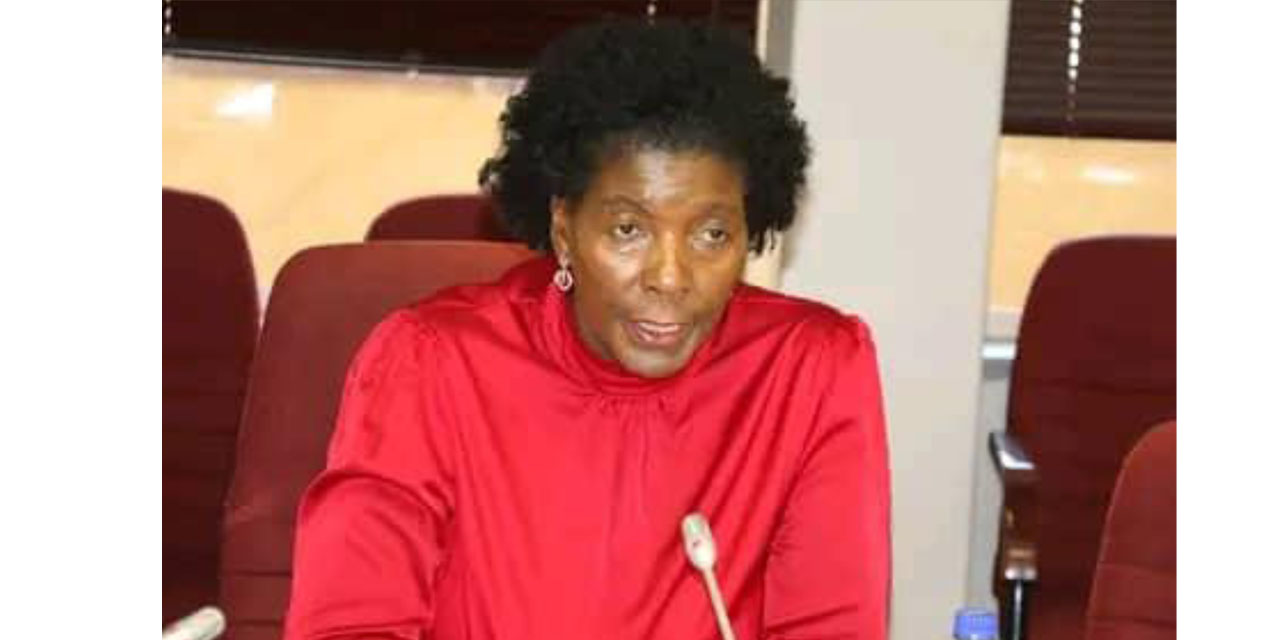Stefanus Nashama
The Ministry of Gender Equality, Poverty Eradication, and Social Welfare has admitted that poverty is on the increase in Namibia.
At the same time, the ministry added that there are several contributing factors to the trend that should be addressed as a matter of urgency.
According to the Executive Director of the Ministry of Gender Equality, Poverty Eradication, and Social Welfare, Martha Mbombo, the legacy of apartheid, which left many Namibians marginalized and without access to land for production means is one of the factors contributing to poverty in the country.
She also explained the effects of climate change, which have made it more difficult for people to grow food and earn a living from the land that some own and the country’s high unemployment rate are other contributing factors.
“Poverty remains a significant challenge in the country, and while the Government bears a responsibility for addressing it, the issue is multifaceted and requires a collective effort from all sectors of society,” Mbombo stated.
The Executive Director responded to Panduleni Itula, the leader of Independent Patriots for Change (IPC), and McHenry Venaani, the leader of the official opposition, who recently blamed the Government for poverty growth in an independent Namibia.
The issue of poverty increase in the country does not only concern Itula and Venaani.
Many people in the country have also expressed the same sentiment, especially with the recent regretful death of 45 children under the age of five years as a result of malnutrition in the Omaheke Region.
The deaths were reported by the Omaheke Regional Heath Director, Jeremia Shikulo.
According to Itula, many people, especially in rural and remote areas are continuously experiencing real poverty in the country, with some going to constituency offices in search of food aid.
Earlier in July, a Swapo Member of Parliament proposed that a grant of N$1 million should be made to each Namibian to address the issue of poverty and the welfare of the people.
Dingara said in his motivation that Namibia is rich enough in natural resources for the state to afford to care for its population.
In light of this, Mbombo said that although poverty exists, the Government is addressing it.
She said the Government through the Ministry of Gender Equality, Poverty Eradication and Social Welfare has implemented programs aimed at reducing poverty.
According to Mbombo, the Ministry provides social grants to orphans and vulnerable children grants, old age grants, disability grants, funeral benefits for people in old age grants and disability grants, and funeral benefits for marginalized communities.
She indicated that social grants, in particular, can help alleviate poverty, but they are not the silver bullet that is needed for total eradication.
“Social grants can provide a safety net for people who are struggling to make ends meet, but they cannot solve the root causes of poverty,” she stressed.
“The Ministry provides financial assistance to people who are struggling to meet their basic needs, such as food, shelter, and clothing, and helps reduce child poverty by providing financial assistance to families with children,” she reiterated.
She added that the Ministry implemented the conversion of foodbank into cash transfers, and ensured that households across the ten regions where marginalized communities live are provided with nutritious food supplements through the Special Feeding Programme.
The Executive Director also explained that the Ministry is implementing programmes and projects designed to create self-employment opportunities and impart business skills to most poor women and, to some extent, poor men as well, to improve the lives and livelihoods of communities.
“However, Namibia is currently faced with a crisis of high unemployment rate with more people struggling to find means to survive, more especially with graduates roaming in streets and cannot find employment,” she said.
Some Parliamentarians recently came forward calling on President Hage Geingob to declare unemployment as a State of Emergency.
The situation resulted in a large number of graduates and unemployed youth staging protest action countrywide on 21 March 2023 or the annual Independence Celebration to express their frustration.
The mass action resulted in the arrest of Parliamentarian Inna Hengari, Activist Dimbulukeni Nauyoma, and Namibia Economic Freedom Fighters (NEEF) member, Michael Amusheleo who is still locked up in jail.
Mbombo stated that the Ministry also initiates gardening projects and drills boreholes to empower vulnerable communities in targeted regions for self-sustenance and improve food security at the household level.
“The Ministry provides women and, to some extent, men with materials and equipment to establish or expand their microbusinesses and generate income to alleviate poverty. The programme targets women and men from the poorest strata with limited access to financial resources,” she said.




